
The regions of Italy are the first-level administrative divisions of the Italian Republic, constituting its second NUTS administrative level. There are twenty regions, five of which are autonomous regions with special status. Under the Constitution of Italy, each region is an autonomous entity with defined powers. With the exception of the Aosta Valley and Friuli-Venezia Giulia (2018–2020), each region is divided into a number of provinces.

The Statuto Albertino was the constitution granted by King Charles Albert of Sardinia to the Kingdom of Sardinia on 4 March 1848 and written in Italian and French. The Statute later became the constitution of the unified Kingdom of Italy and remained in force, with changes, until 1948. Charles Albert did not want to grant a Constitutional Charter so he attempted to maintain as much power as he could even though the Statute marked the end of his absolute monarchy.
Freedom of religion in Italy is guaranteed under the 1947 constitution of the Italian Republic. Before that religious toleration was provided for by the constitution of the Kingdom of Italy which in turn derived from the Albertine Statute granted by Carlo Alberto of the Kingdom of Sardinia to his subjects in 1848, the Year of Revolutions.
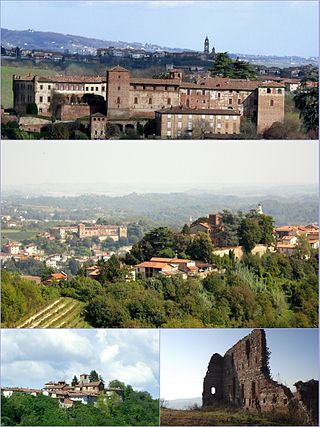
Passerano Marmorito is a small rural comune (municipality) in the Province of Asti in the Italian region Piedmont, about 25 kilometres (16 mi) east of Turin and about 20 kilometres (12 mi) northwest of Asti.
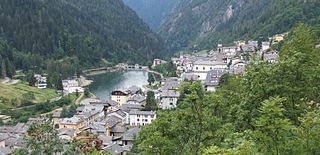
Carona is a comune (municipality) in the Province of Bergamo in the Italian region of Lombardy, located about 80 kilometres (50 mi) northeast of Milan and about 35 kilometres (22 mi) north of Bergamo. By the statute of Carona, on its territory there are no hamlets, but it still recognises the localities of Carona Bassa and Pagliari.

Paolo Mieli is an Italian journalist who has been editor of Italy's leading newspaper, Corriere della Sera. Born in Milan, Mieli debuted as journalist at 18 for L'Espresso, where he remained for some 20 years. As a member of Potere Operaio, he initially adhered to far-left positions. Later, he took a more moderate stance under the influence and tutelage of his teachers Rosario Romeo and Renzo De Felice. In 1971, he signed the open letter to L'Espresso on the Pinelli case against the police officer Luigi Calabresi.
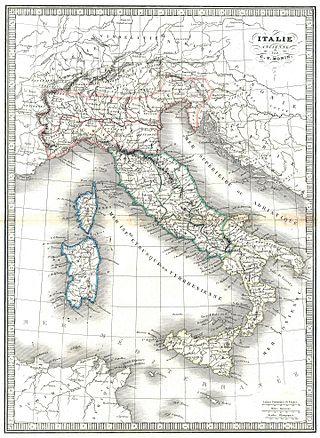
This article deals primarily with the nature of Italian citizenship from the time of unification to the present. It is concerned with the civil, political, and social rights and obligations of Italian nationals and addresses how these rights and obligations have been changed or manipulated throughout the last two centuries.
The Fascist Civil and Military Order of the Roman Eagle founded in 1942 with civil and military divisions, was abolished in Italy in 1944; although it continued to be awarded by Benito Mussolini in the short-lived Italian Social Republic until 1945. A self-styled order of the same name was founded by Romano Mussolini, fourth and youngest son of Benito Mussolini, in 1997.
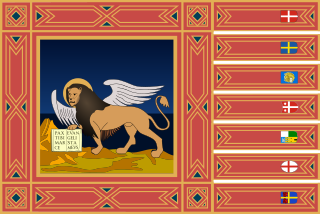
The Statute of the Region of Veneto is the constitution of Veneto, a Region of Italy.
The Statute of Sicily establishes the rule of Sicily as the Autonomous Region within the political unity of the Italian State and was issued by King Umberto II of Savoy, on 15 May 1946, after a separatist clash provoked by the via Maqueda massacre in 1944. Its enactment has thus preceded the birth of the Italian Constitution, which the statute would become an integral part on February 26, 1948.
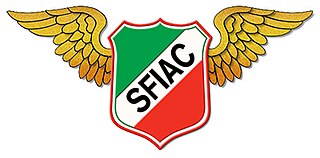
The San Francisco Italian Athletic Club is a men's social and athletic club located at 1630 Stockton Street on Washington Square, North Beach in San Francisco, California. It sponsors the Statuto Race, an annual footrace event that has been running since 1919.
The Constitution of the Italian Republic, was the constitution of the Italian Republic, a client republic of France under Napoleon Bonaparte, roughly comprising the modern-day northern regions of Lombardy and Emilia-Romagna. It came into effect on 26 January 1802.
The Constitution of the Cisalpine Republic, was the second constitution of the Cisalpine Republic, a sister republic of France, roughly comprising the modern-day northern regions of Lombardy and Emilia-Romagna. It came into effect just after a French golpe on 31 August 1798, replacing the 1797 Constitution.
The Constitution of the Cisalpine Republic, was the third and final constitution of the Cisalpine Republic, before being replaced by the Italian Constitution of 1802. It came into effect on 7 October 1801, replacing the former constitution of 1798.
Statuto is Italian for statute. It is also a surname, notably of:
The Taoist Church of Italy is a religious body of Taoism established in 2013 by Vincenzo di Ieso, a fourteenth-generation Taoist master of the Xuanwu school of the Wudang Mountains, into which he was initiated in 1993 with the ecclesiastical name of Li Xuanzong. Despite the founder's particular affiliation, the church intends to incorporate all forms of Taoism in Italy. The establishment of the church has been defined by a scholar of religious rights as a "crucial event for both Taoism and religious freedom in Italy".

The Regional Council of Apulia is the legislative assembly of Apulia.

The Statute of Abruzzo is the fundamental law of Abruzzo Region. It was approved by the Regional Council on 28 June and 12 September 2006. The Statute was published in the Official Bulletin of Abruzzo on 22 September 2006 and came into force on 11 January 2007.

The 2021 Five Star Movement leadership election was an Italian online primary election held on 6 August 2021 that determined the president of the M5S. The election was de facto a plebiscite in which party's members were asked to approve or reject the candidacy of former prime minister Giuseppe Conte as new leader. Conte easily won the election with 92.8% of votes.










